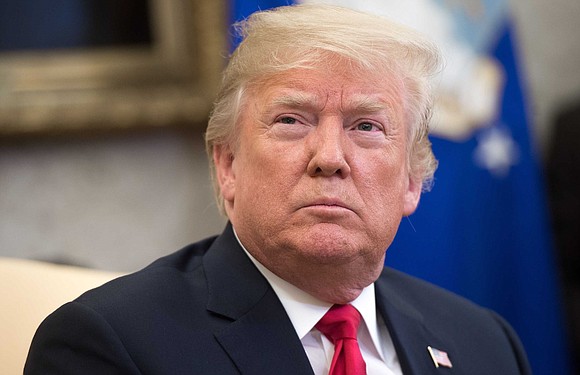Trump is right about collusion
CNN/Stylemagazine.com Newswire | 8/1/2018, 4:09 a.m.
(CNN) -- We have now gone from months of confident proclamations from President Donald Trump of "NO COLLUSION" to the much meeker "Collusion is not a crime."
Indeed, it was only Monday that the President's leading mouthpiece, Rudy Giuliani, moved the goalposts 50 yards in a rambling, semi-coherent interview on CNN, saying, "They're not going to be colluding with Russia, which I don't even know if that's a crime."
Giuliani's retreat does little to help his or the President's credibility, but it was already near rock bottom with the series of factual misstatements and legally preposterous assertions that have been his modus operandi since rejoining Team Trump.
The fact is, however, he's actually right this time. Maybe the reason collusion isn't a crime is, in large part, because that word is not in the federal code book and it means different things to different people.
If you take the dictionary meaning, it seems clear enough: collusion is a "secret agreement or cooperation especially for an illegal or deceitful purpose."
But as many commentators, including me, have been trying to point out, the word and legal concept that we should always have been using here is "conspiracy."
Hopefully, with Giuliani's latest prevarication, we can adjust the legal debate to where it should be, namely focused on whether Trump and his close associates could be properly charged with criminal conspiracy.
What that would mean in the abstract — and it's quite simple -- is that two or more people came to an agreement, the objective of the agreement was a crime, and each of them undertook some act (what the law calls an "overt act").
Nor must the conspirators actually complete the crime. Conspiracy criminalizes the agreement itself. And one can join a conspiracy late in the day, for example as an accessory after the fact. (Think, for example, of the Air Force One flight on which President Trump -- with the reported participation of at least Donald Trump Jr. and Hope Hicks -- dictated a misleading account of the Russia meeting.)
What does this portend for special counsel Robert Mueller's investigation?
Most importantly, we shouldn't prejudge criminal liability before knowing what facts Mueller develops. Some Trump antagonists have presumed guilt, while Team Trump has continually trumpeted there's "no evidence" of collusion. Meanwhile, Mueller is quietly pursuing the facts where they lead, and we will know his conclusions in good time.
But it's not hard to posit what conspiracy liability might look like for the President and his closest associates.
Two scenarios come immediately to mind based on allegations involving Russian nationals that Mueller has put together already. The first could be a criminal conspiracy to solicit or receive "something of value" from a foreign government, namely the "dirt" on Hillary Clinton that Trump Jr. was promised (responding "I love it") would be delivered at the meeting.
The overt act requirement would be straightforwardly satisfied with the June 2016 meeting itself.
A variant of the conspiracy to violate federal election laws is a charge under 18 USC §371, a conspiracy to defraud the United States by impairing and impeding the legitimate functions of the Federal Election Commission. That theory was used successfully to prosecute Charlie Trie for violating various campaign finance laws in attempting to support Bill Clinton's 1996 presidential campaign. He was convicted.
Second, there could be a criminal conspiracy to violate computer laws, namely in the hacking of the Democratic National Committee system. Here there are nuanced factual questions about when the hacking occurred and whether and when there was agreement within the Trump campaign to use the material.
I think the short answer to address those nuances, however, is that the conspirators could have agreed to be accessories after the fact, and thus be exposed to criminal liability.
Since "maybe collusion isn't a crime," let's stop talking about it. The right legal term is "conspiracy." The clarification isn't necessarily to the President's benefit -- in fact it gives rise to a concrete case or cases of criminal liability -- but it provides a shared and precise grounding to the national discussion of whether the President and his close associates have broken the law.







